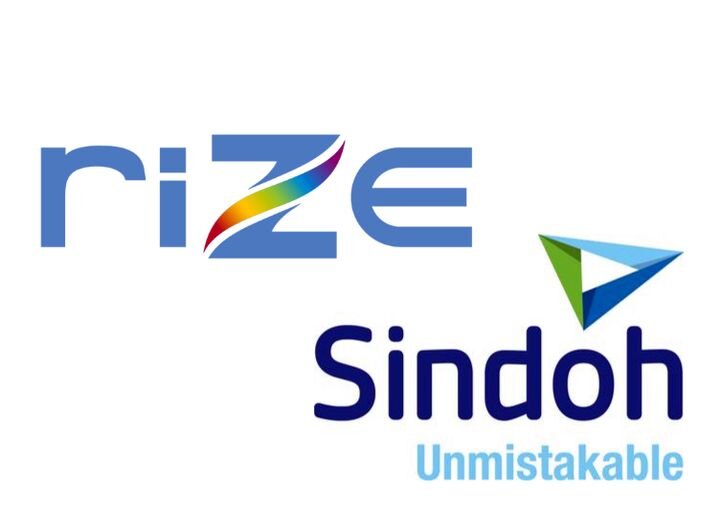
Two 3D printer companies have made an arrangement for use of materials: certain Sindoh equipment will be able to make use of RIZE materials.
We’ve covered Sindoh for years, testing several of their devices, most recently with the very easy-to-use 3DWOX 1, which provides a good mix of open and closed characteristics. Sindoh is originally a photocopier company, launched in 1960, but more recently they’ve been getting deeper into 3D printing.
Their initial forays into 3D printing were basic devices, although made incredibly easy to use by inheriting some of their photocopier interface knowledge. More recently they’ve been developing machines for professional use, such as their 7X and 2X machines.
RIZE is a 3D print startup whose equipment uses an unusual 3D printing process that combines filament extrusion and liquid inkjet technologies. The inkjets are used to produce full color textures in the prints, or to separate support structures from the model.
Recently RIZE has developed a line of very interesting 3D printer filament that they call RIZIUM. It’s an engineering grade material but its most unique property is that it is entirely safe for use. It is chemically designed to not emit ANY volatile organic compounds (VOCs), which virtually all other filaments emit. This is a very safe material, and it has even achieved a UL 2904 GREENGUARD certification.
The arrangement with Sindoh is to provide access to RIZIUM materials for Sindoh’s 7X and 2X devices. While the 7X could be considered a professional machine, the 2X is a dual extrusion device that’s targeted at the education market.
The new materials could allow Sindoh to sell additional equipment to educational institutions that require higher levels of safety for students. It could provide a notable advantage for Sindoh in that market.
This deal is a bit of surprise to me, as a typical 3D printer manufacturer that has produced a powerful material tends to keep it to themselves: if you want to use this material, you have to buy our machine, too.
But evidently this is not the case, as the arrangement allows more than one vendor to offer RIZIUM materials. I’m wondering if RIZE will make similar arrangements with other 3D printer manufacturers?
It’s possible that RIZE sees a good-sized business with deals of this type; they have developed a unique product and it’s clearly desirable. We may see more companies using RIZE filaments in the future.

